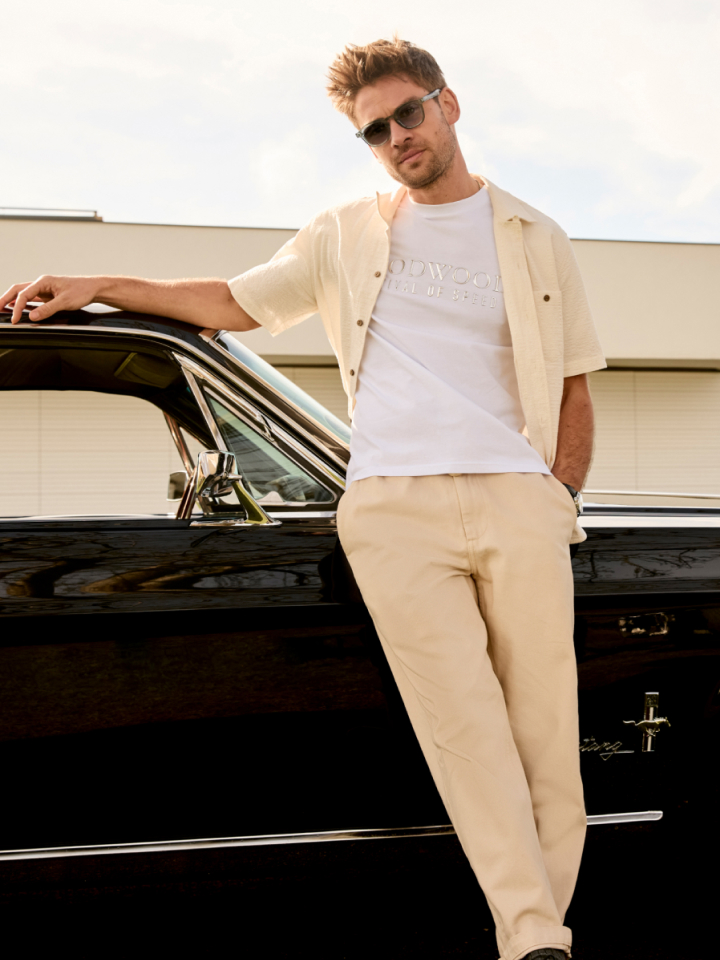Each week our team of experienced senior road testers pick out a new model from the world of innovative, premium and performance badges, and put it through its paces.
Heritage
This sportiest addition to Ducati’s Scrambler sub-brand is inspired by contrasting models built almost four decades apart. The Café Racer’s lean lines and black-and-gold paintwork – not to mention its traditional air-cooled, 90-degree V-twin engine layout – echo the Ducati 900SS that in 1978 was among the world’s fastest, raciest and most charismatic of superbikes.
Yet as a Scrambler, rather than simply a Ducati, the Café Racer is directly derived from a very different and much more recent machine: the Scrambler which, with its Sixties-inspired off-road styling, upright riding position and softly-tuned 803cc engine, began the Bologna brand’s entry-level family in 2015. Having first added an even more accessible option with the 399cc Scrambler Sixty2, here Ducati heads towards more traditional territory.
Design
The Café Racer earns its name with clip-ons, bar-end mirrors, a cut-down front mudguard and a humped seat with pillion seat cover. The No.54 on its racer-style oval sidepanels was the number favoured by '70s factory star Bruno Spaggiari. Although the tubular steel frame is shared with other Scramblers, a longer shock steepens steering geometry for sportier handling. Suspension at both ends is stiffer; new 17-inch wheels wear stickier Pirelli tyres.
But if that all suggests a hardcore street racer like the old 900SS, closer examination reveals a more gentle approach. The Café Racer’s 803cc engine is the same, sohc 74bhp V-twin used by other Scramblers. The suspension still provides a generous 150mm of travel at each end. And rather than being set low like a racebike’s, those clip-on bars are raised above the top yoke, and combine with the unchanged footrest position and taller seat to give a fairly relaxed and roomy riding position.
Performance
It might be less aggressive than it looks but the Café Racer is still quick enough to be fun. The aircooled engine is very flexible, its only “tuning” a throttle modified to give softer initial response. There’s enough midrange torque to generate lively acceleration from a bike that weighs just 188kg. The slight lean forward to the bars is welcome as speeds rise towards a top speed of about 130mph, which roughly matches that of the old 900SS.
Chassis performance is rider-friendly, in terms of both handling and comfort. The Café Racer steers with effortless precision and keeps good suspension control despite the generous travel. There’s plenty of tyre grip and ground clearance. Although the front brake makes do with a single disc, the Brembo Monobloc caliper generates adequate if not outstanding stopping power. Despite those Scrambler compromises the Café Racer behaves – and rewards hard riding – like a proper Ducati.
Passion
Perhaps it was partly Ducati’s passion that got in the way, a decade ago, when the firm previously attempted a racy retro V-twin. The Sport Classic 1000’s riding position proved too harsh for the mostly older riders who appreciated its Seventies style. By comparison the Café Racer is approachable and down-to-earth. It’s manoeuvrable in traffic; its economical engine gives a range of 130 miles or more; its simple, round instrument panel is basic but legible.
If the Café Racer is less of an entry-level model than most Scramblers, that’s due to its higher price of £9,650 rather than to its extra aggression or performance. Ducati’s Monster 821 offers more power and refinement for not much more money, but this latest Scrambler counters with useable performance, simplicity and V-twin heritage. Whether or not you grew up idolising the thunderous original 900SS, that’s one hell of a combination.
Price tag of our bike: £9,650.
Ducati
Scrambler
The Goodwood Test

















































































